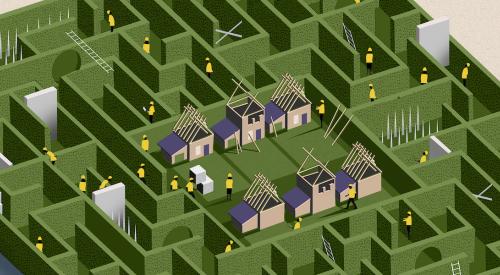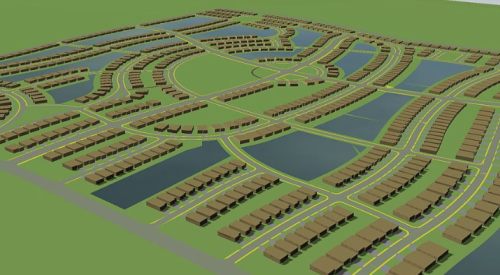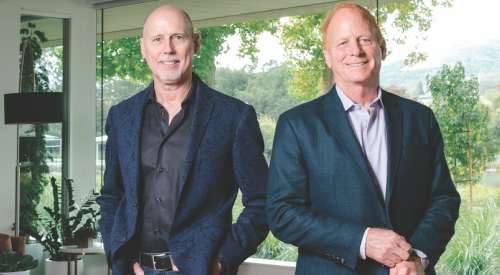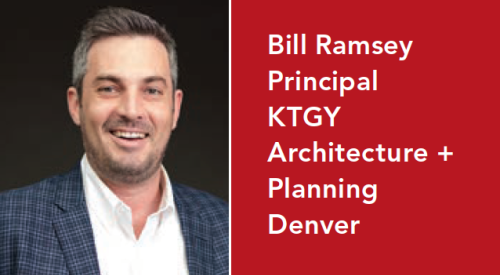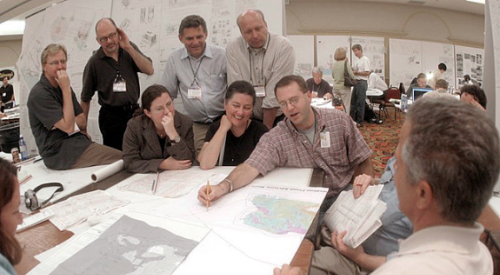The New Jersey Department of Community Affairs, in concert with more than 20 philanthropic foundations, has found a solution to an age-old builder problem: create a sense of community between existing neighbors, city officials and developers.
A do-it-yourself, collaborative procedure led by neighbors of the proposed project seems to work best. "When the neighbors of a proposed project initiate this collaborative procedure, usually everyone participates — regardless of past confrontation," says Karl Kehde, the principal researcher who participated in more than 500 meetings between neighbors, developers and city officials.
From the collaborative meetings, a guidebook came to life: "Smarter Land Use" by Karl Kehde. Written for the neighborhood groups that host the meeting, the guidebook provides the proper information to set up and succeed with the new process. "It provides information to all the stakeholder groups who are going to participate," says Kehde. "Developers need to have the guidebook to know exactly how the meeting works, what they do in the meetings and how important it is for the neighborhood group to host it."
In conjunction with the guidebook, Kehde recently developed a Web site called Landuse.org, which provides a free download of the guidebook. A history of the research done to reach this new process, testimonials and success stories are also found on the Web site.
"Achieving a sense of community among all land development stakeholders is the road to the best economic growth," says Kehde. "We discovered a step-by-step procedure that mends relationships across the board and achieves profitable development designed specifically to benefit the surrounding neighborhood.
"With this process, the neighbors actually invite the builders to join their team and get to know them as people and share their expertise as far as what should go on the site that will be of greatest value to the property value and quality of life to that area," says Kehde. "It makes them (builders) easier to be heard by a neighborhood, and they become part of the neighborhood team. They're no longer the opponent."
